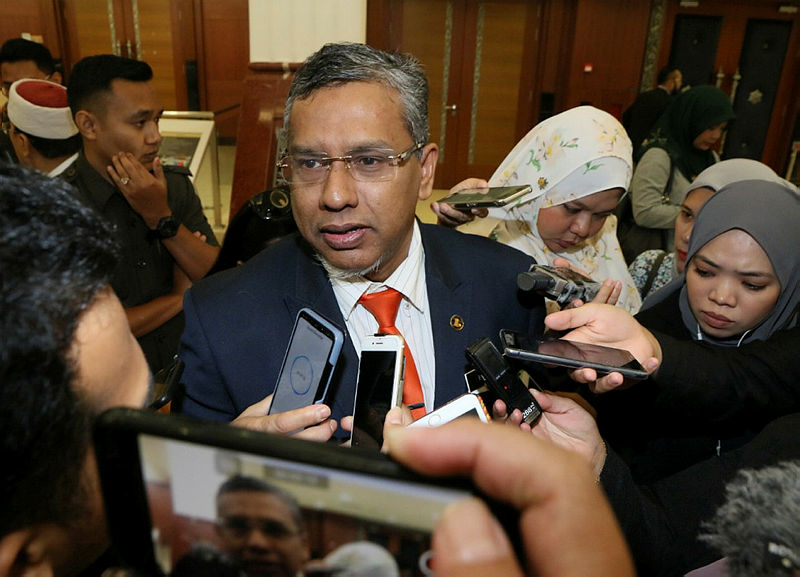KUALA LUMPUR: The government may yet retain the controversial Official Secrets Act 1972 (OSA), according to Deputy Minister in the Prime Minister’s Department Mohamed Hanipa Maidin.
He said the Pakatan Harapan (PH) administration was still considering whether to repeal the act altogether and replace it with the new proposed Freedom of Information Act, or to have the two legislations exist in unison with one another.
Hanipa explained that this as the OSA was still necessary to protect sensitive and confidential government information, and that it was only deemed oppressive because the previous Barisan Nasional (BN) government had misused the law.
“We are still studying both options, whether to do away with OSA or to improve it and have it jointly exist with the Freedom of Information Act.
“This (joint existence) is to strike a balance and offset whatever suppressive elements that OSA might have with the introduction of the new act,” he told the Dewan Rakyat, here, today.
“Actually, personally for me, there’s no issue with the OSA. Previously, the issue was not with the act itself, but the problem was it was being misused. It was used to protect cruelty and abuse of power, and not to protect confidential information,” he added.
Hanipa said the government also remained committed to ensure whatever move the government makes was inclusive and holistic, and that the public and other relevant stakeholders would be consulted first.
He was responding to questions from Datuk Seri Azalina Othman Said (BN-Pengerang) on the status of the proposed Freedom of Information Act that will replace OSA and if the government would engage the public before making any decisions.
The possibility of retaining OSA is contrary to PH’s election manifesto. The coalition had pledged to repeal the act, along with other legislations deemed oppressive and draconian if it came into power.
Prime Minister in Tun Dr Mahathir Mohamad had in July also said the government would draw up a Freedom of Information Act to replace the OSA, but said sufficient time was needed for the drafting of the law.
Asked if there was any necessity for the Freedom of Information Act to be introduced, considering Article 10(1)(a) of the Federal Constitution already provides for this, Hanipa clarified that the constitution does not specify on one’s right to information.
“Under the article, it only mentions freedom of speech and expression. But PH is committed to defend the rights of the people to information, which is why we are drafting the act,” he said.










